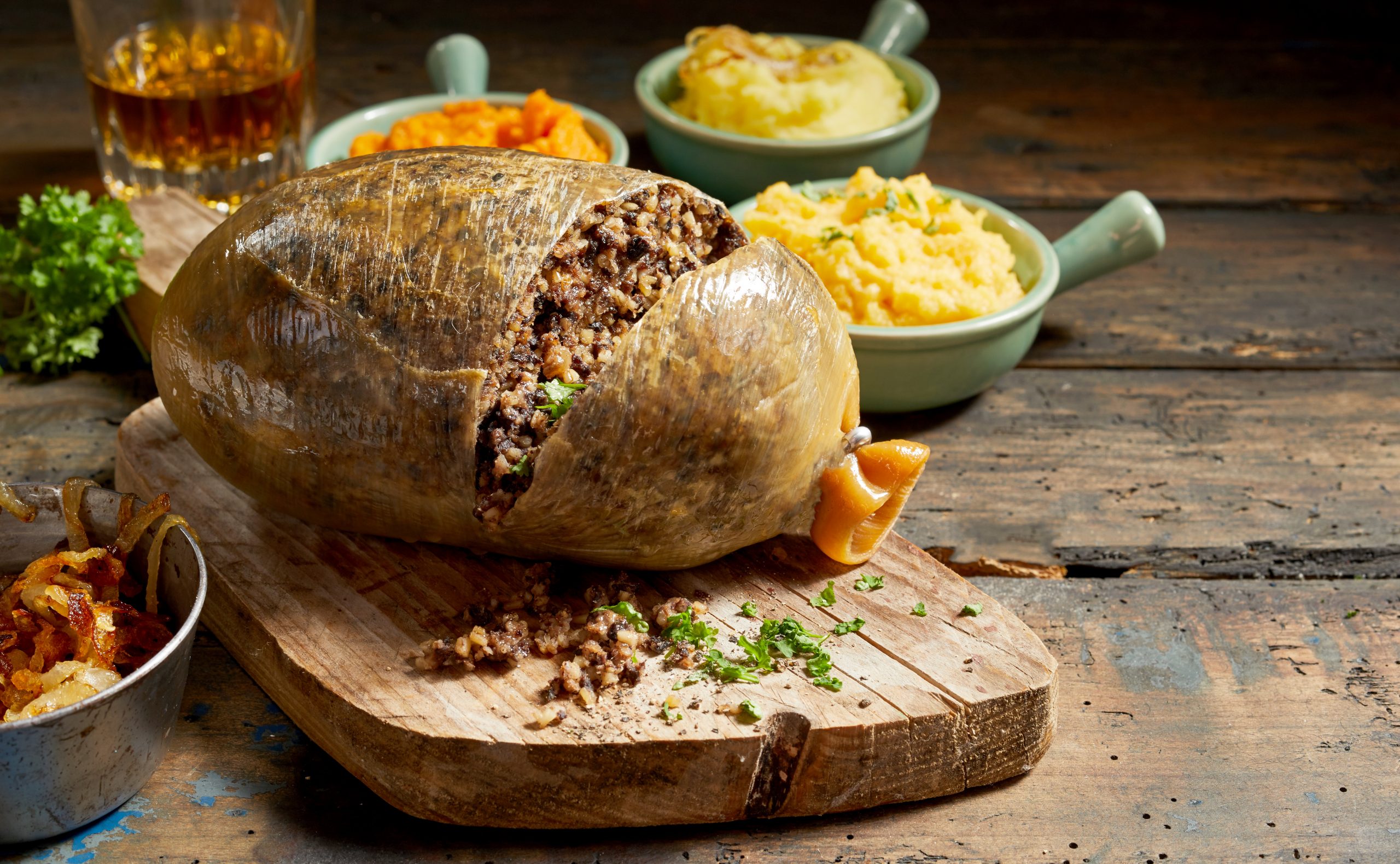On a cool fall evening in the Scottish Highlands, a hoary drizzle herds you toward a warm, well-lit tavern. Once inside, you find a seat in a creaky wooden booth, and the server wanders over. He’s tall, red-headed, and wearing a kilt, of course. He asks you what you’re looking for. Comfort food, you tell him, to ward off the chill outside. With a broad Scottish brogue, the server tells you that what you’re looking for is haggis—a savory pudding drizzled with a whiskey-based sauce, served with “neeps and tatties,” or mashed turnips and potatoes. You order it. The server brings it to you. It’s simply delicious—one bite and you’re hooked. But what exactly is haggis?
What is haggis?
Haggis is offal—sheep’s offal, to be exact. Haggis is a traditional Scottish dish made of sheep “pluck,” or liver, heart, and lungs, mixed with suet (translated as raw, hard mutton fat found around the loins and kidneys), oats, and spices. It’s cooked in a sheep’s stomach—yes, the actual stomach, like a balloon—and usually served with a glass of whiskey.
What does it taste like?
Haggis is a distant cousin of meatloaf, but the comparison doesn’t do it a bit of justice. Imagine meatloaf, except superior in every way—softer, more flavorful, and a much better comfort food. That’s haggis. It’s best eaten on a particularly dreich day in Scotland, preferably near a castle in the Highlands, but you can substitute any old time and place just fine.
Why is it banned in the US?
In the 1970s, the USDA banned haggis because it contains sheep’s lung, an ingredient that could possibly contain dangerous microbes if not prepared properly. While the risk is low, mass meat manufacturing in the US makes the process more dangerous here than it is in Scotland. Many Scottish butchers are aware of the risk and take steps to make sure their sheep’s lung isn’t contaminated.
Where can you get it around here?
While you can’t get real traditional haggis in the US, you have a couple of options for a pretty good substitute. At the end of January, many Scottish clubs host a Burns supper, which often includes American haggis (i.e., haggis without the sheep’s lung). Here in Provo, the Utah Scottish Association holds a BYU Robert Burns Supper every January to commemorate the poet’s famous “Address to a Haggis.” If you can’t wait that long, you can always try out a recipe or two for your own homemade haggis!
—Haley Brette Gardner

